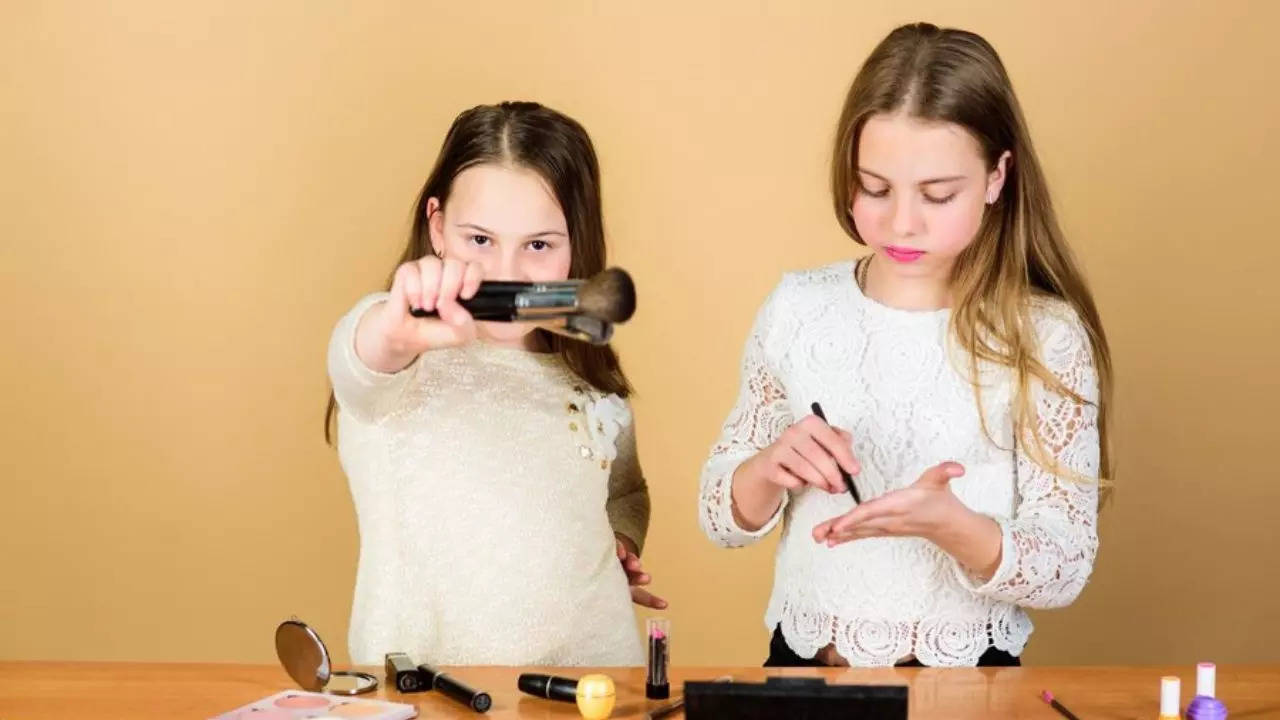At just 12 years old, Lavanya Banerjee cautiously checks her surroundings before gleefully tapping the ‘buy now’ option on Zepto. Standing near her front door, she remains glued to her mobile screen, eagerly awaiting the notification that her order has arrived. The moment it pops up, she dashes down the stairs to retrieve her much-anticipated product – a concealer.
You might be wondering why a young girl like Lavanya needs a concealer. This is the same question her mother posed when she discovered Lavanya using one. Initially hesitant to respond, Lavanya eventually explained, “I dislike the blemishes and acne marks on my face. Using a concealer is my way of feeling presentable at school.” Her mother, taken aback and concerned, grappled with how to address the situation.
The Rising Trend of Tween Fascination with Beauty Products
According to Dr. Pallavi Rao Chaturvedi, an educator and parenting expert, this scenario is increasingly common among parents. She suggests that children may be drawn to beauty products due to familial influences and exposure to social media, where influencers showcase extensive makeup routines.
Strategies to Address Tween’s Beauty Product Obsession
Dr. Pallavi advises parents to refrain from accompanying their children to purchase cosmetics. Additionally, she emphasizes the importance of monitoring the content consumed by children, as exposure to makeup tutorials can significantly impact their perceptions.
Educating Children on the Risks of Beauty Product Usage
Many parents have expressed concerns to Dr. Pallavi about their children opting for ‘preservative- and chemical-free’ beauty items. She advocates for educating children about the potential side effects of such products on their skin. Regular discussions on this topic can effectively convey the message to children.
Redefining Beauty Standards for Children
Dr. Pallavi highlights the misconception prevalent among children that beauty equates to flawless skin and appearance. She urges parents to redefine beauty by emphasizing confidence and self-assurance over physical attributes. Encouraging children to understand that true beauty lies in one’s beliefs and attitudes can help address this issue effectively.

